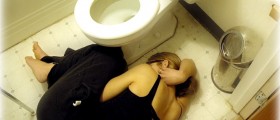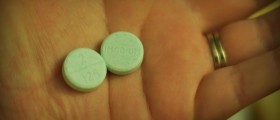
What is diarrhea?
There is almost not a person in the world who has never heard of diarrhea. Every person experiences problems with diarrhea several times during a period of one year because diarrhea is one of the most common symptoms that a person can experience, according to certain researches. A person who experiences loose and watery stool at least three times in one day is diagnosed with diarrhea. However, people should not mix diarrhea with a loose stool that occurs from time to time or with frequent passing of formed stools. There is not a person in the world that is immune to diarrhea. The cause of the problem will determine how long it will last. Most often it lasts for a couple of days but in some cases it can last for months and even years. Diarrhea can be potentially dangerous for babies and old people because there is a danger of lost fluid not being replaced. According to the studies an average adult suffers from diarrhea four times per year.
Understanding bowel movements, stool and diarrhea
If a person suffers from diarrhea, then something has changed in his or her bowel movements. Loose stool is an obvious sign. Stools are watery when there is not enough absorption of fluids or if the digestive system produces extra fluids. Dehydration occurs quite often in people who suffer from diarrhea. It is important that the lost fluids are replaced in order for some serious health problems to be avoided. Are there foods that cause diarrhea in toddlers?
Parents should know that there are certain foods that are known to cause diarrhea in toddlers. Milk and other dairy products are especially dangerous if the toddler is allergic to milk protein. Lactose intolerant babies are also prone to suffer from diarrhea after consuming these products. Apple juice, pear juice and cherry juice are also known to cause diarrhea because they contain sorbitol.
When to see the doctor?
If the toddler has diarrhea for more than 24 hours, the parents should take the child to the hospital. The child should also be taken in cases when vomiting is present, stool contains blood, the temperature of the toddler is above 101.4 F or if there are signs of dehydration like frequent crying, sunken abdomen and eyes, irritability or dry mouth and tongue. Treatment options
It is best that diarrhea is prevented. If that is not possible it is important to treat the signs, like dehydration. The best way to prevent diarrhea in toddlers is to make sure that the child replaces the lost fluids.


_f_280x120.jpg)














Your thoughts on this
Loading...